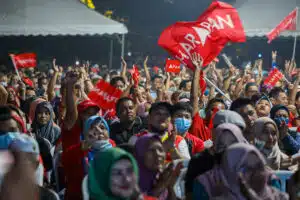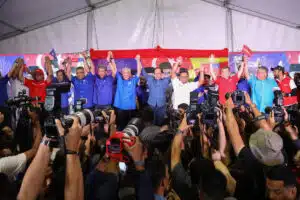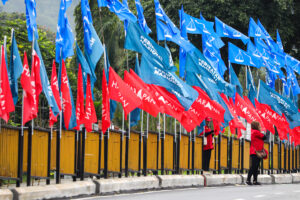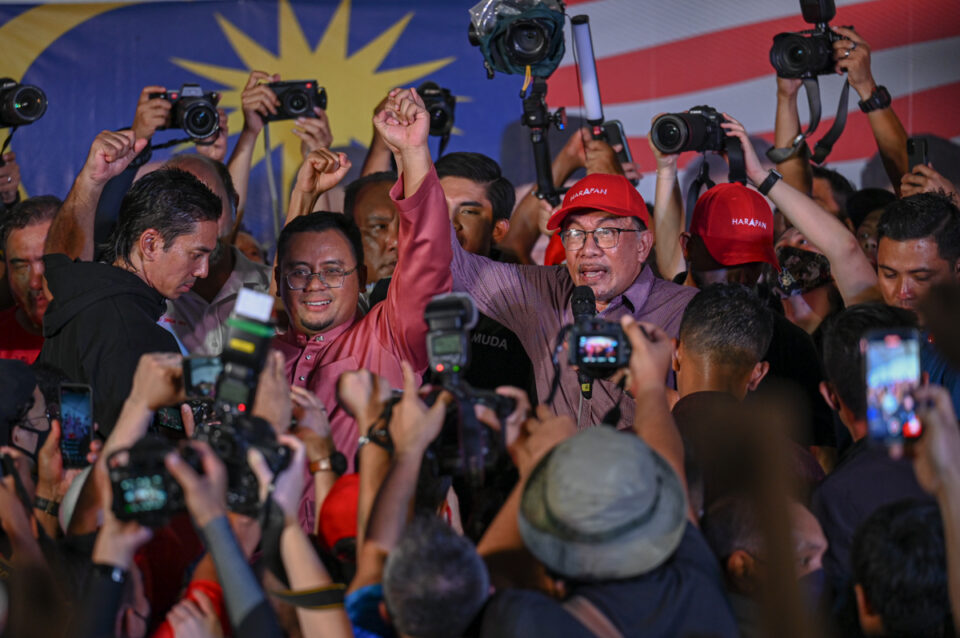By Danial Dzulkifly
SHAH ALAM, Dec 28 — Under the leadership of Menteri Besar Dato’ Seri Amirudin Shari, the Selangor government is confronted with the complex challenge of gaining the Malay electorate’s trust, especially in representing their interests beyond mere economic betterment.
While Selangor had, in 2022, contributed a significant 25.5 per cent of the gross domestic product to Malaysia’s economy, Amirudin’s Unity Government must navigate the political landscape shaped by the rising influence of Perikatan Nasional (PN).
In the August state elections, PN secured 22 seats, closely trailing the government’s 34, denying the Pakatan Harapan (Harapan) and Barisan Nasional (BN) pact of a two-thirds majority of 38 out of 56 seats.
According to political analysts, the support for PN largely stems from a broader Malay disenchantment with the Unity Government, rather than specific discontent with state policies.
Public sentiment generally reflects satisfaction with the state’s governance but harbours scepticism towards the Federal leadership under Prime Minister Datuk Seri Anwar Ibrahim.
Nusantara Academy for Strategic Research (NASR) senior fellow Azmi Hasan pointed out that the Selangor administration’s struggles are partly due to the ‘green wave’, a term coined to reflect the discontent among the Malay majority with the Federal government, which has indirectly affected the state government’s standing.

Azmi also observed that Umno, traditionally a strong advocate of Malay rights, appears weakened and less assertive on the issue than PN.
“Umno is perceived as weak at the state level, a situation worsened by PN’s focus on nativist politics,” he said.
In the recent state election, Umno contested 12 seats but only managed to secure two, namely Sungai Air Tawar, won by Datuk Rizam Ismail, and Dusun Tua, won by Datuk Johan Abdul Aziz.
Rizam pulled an upset for his seat, beating his PN opponent Mohamad Zaidi Selamat by a majority of 846 votes despite many political observers projecting at the time that the seat, along with all other seats in northern Selangor, would be swept by the ‘green wave’.
As for Johan, many analysts opined that he had won the seat thanks to the collaboration between Umno and DAP, the first electoral victory for the enemies-turned-political allies.
It is also important to note that the Dusun Tua seat was traditionally contested and held by the DAP.
Another political analyst, senior fellow at the Singapore Institute of International Affairs Oh Ei Sun, concurred with Azmi on the Amirudin government’s challenges stemming from eroded Malay trust in the Federal government.
“Generally, the whole Unity Government’s viability is at stake, and not particularly his (Amirudin) credibility. If anything, it would be the other way around, that he is a victim of the mounting green wave that is set to gobble up this country, despite Selangor’s decent record for development.
“For green wave supporters, religiosity rather than development seems to be prioritised,” he said.

Trickle-down effect
Both Oh and Azmi also agreed that Federal politics play an important role in public perception and the trust given to the Selangor state administration.
“It is not so much to do with state politics. The issue lies with politics at the Federal level that impact the public’s trust towards the state administration as a whole,’’ said Azmi.
Following the formation of the Unity Government, the use of racial and religious rhetoric has escalated, with detractors frequently using them as ammunition when discussing economic issues.
Government parliamentarians frequently find themselves needing to debunk misinformation while maintaining a level-headed approach.
However, they often appear to be on the defensive, reacting to these provocations rather than proactively addressing and navigating around these complex issues.
Following the recent decision of four opposition members from Parti Pribumi Bersatu Malaysia (Bersatu) to shift their support to Anwar, the verbal clashes in Parliament have intensified even more.
Many opposition members have become increasingly vocal against Anwar’s administration, using racial and religious issues as political leverage.
Despite the Unity Government now garnering more than a two-thirds majority in the Dewan Rakyat, the feelings of discontent at the Federal level will no doubt trickle down to any state administration aligned with the Unity Government, including Selangor.

Empowering Umno
The current political challenge for both Anwar and Amirudin is to effectively communicate to the Malay community that their respective levels of government are genuinely committed to safeguarding their interests, particularly in relation to their native rights, as outlined in the Federal Constitution.
This task is increasingly vital as many political observers have noted a trend towards greater religiosity within the Malay community.
There is a pressing need for both Anwar and Amirudin to demonstrate a strong commitment to empowering Islam and addressing the religious concerns of the community.
To this effect, Azmi suggested that among the first key initiatives that Amirudin can do is to take cues from Anwar’s approach in providing Umno with key positions within his administrative line-up.
He said this could be done by empowering Umno within the state to help it regain Malay support, despite their minimal representation in the state assembly and perceived weakness to challenge DAP.
Drawing parallels with the Federal government, Azmi suggested, “Amirudin must learn from Anwar’s strategy of empowering Umno by assigning them key ministries in the Cabinet reshuffle.
“This approach is vital for Selangor too, despite Umno’s minimal representation with just two seats in the state assembly,” he said.
The recent Cabinet reshuffle includes the portfolios of Finance Minister II (assigned to Datuk Seri Amir Hamzah Azizan), Plantation and Commodities Minister (to Datuk Seri Johari Ghani), Health Minister (to Datuk Seri Dr Dzulkefly Ahmad), Digital Minister (to Gobind Singh Deo), and Human Resources Minister (to Steven Sim).
Umno’s Johari was re-appointed into the Federal cabinet, while Datuk Seri Khaled Nordin and Datuk Seri Zambry Abdul Kadri were given the Defence and Higher Education portfolios, respectively.
Amirudin and his team, comprising state executive councillors and government backbenchers, often highlight Selangor’s development and economic achievements to attract voters.

Their strategy primarily revolves around key policies like the First Selangor Plan or RS-1 and major development initiatives such as the Sabak Bernam Development Area (Sabda), Integrated Development Region in South Selangor (Idriss), and Selangor Maritime Gateway (SMG).
A significant part of Amirudin’s political narrative focuses on the substantial investments attracted by the state, Selangor’s notable contribution to the national economy, and the state’s commitment to social programs.
Amirudin contrasts his administration’s achievements with those of his predecessor, Datuk Seri Mohamed Azmin Ali, who is now an opposition leader in the state, representing PN.
This comparison is often used to underscore the current administration’s focus on social welfare and economic progress.
However the strategy was deemed ineffective to woo the Malays, many of whom still look for a stronger representation in the state and Federal governments.
Oh stated that while there are those who are very progressive and reform-minded for whom growth and the improvement of livelihoods are top sociopolitical priorities, nativist concerns remain a pivotal political leverage.
This is especially true for rural Malays, whose support has massively eroded, even for a Malay-based party like Umno.
“There is also a mounting greenwave demographic cohort who would prioritise spiritual concerns above all else.
“Traditionally, one would advocate improving the livelihoods of those in the rural areas as a sure bet to secure that sizable vote bank.
“Increasingly, however, the spiritual dimension seems to be creeping ever more profoundly into rural and urban mindsets, even in advanced states like Selangor,” he said.






